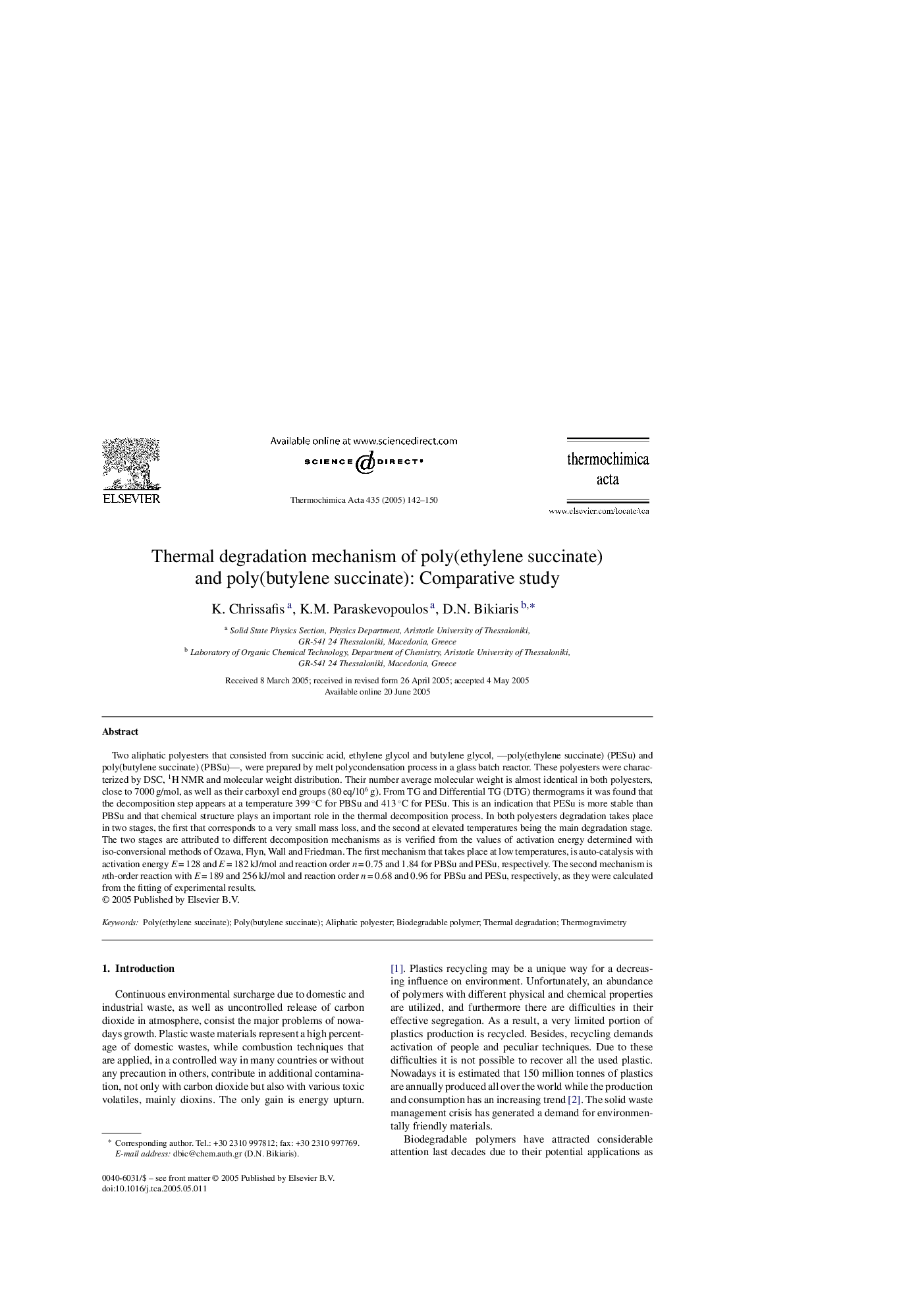| Article ID | Journal | Published Year | Pages | File Type |
|---|---|---|---|---|
| 10393199 | Thermochimica Acta | 2005 | 9 Pages |
Abstract
Two aliphatic polyesters that consisted from succinic acid, ethylene glycol and butylene glycol, -poly(ethylene succinate) (PESu) and poly(butylene succinate) (PBSu)-, were prepared by melt polycondensation process in a glass batch reactor. These polyesters were characterized by DSC, 1H NMR and molecular weight distribution. Their number average molecular weight is almost identical in both polyesters, close to 7000 g/mol, as well as their carboxyl end groups (80 eq/106 g). From TG and Differential TG (DTG) thermograms it was found that the decomposition step appears at a temperature 399 °C for PBSu and 413 °C for PESu. This is an indication that PESu is more stable than PBSu and that chemical structure plays an important role in the thermal decomposition process. In both polyesters degradation takes place in two stages, the first that corresponds to a very small mass loss, and the second at elevated temperatures being the main degradation stage. The two stages are attributed to different decomposition mechanisms as is verified from the values of activation energy determined with iso-conversional methods of Ozawa, Flyn, Wall and Friedman. The first mechanism that takes place at low temperatures, is auto-catalysis with activation energy E = 128 and E = 182 kJ/mol and reaction order n = 0.75 and 1.84 for PBSu and PESu, respectively. The second mechanism is nth-order reaction with E = 189 and 256 kJ/mol and reaction order n = 0.68 and 0.96 for PBSu and PESu, respectively, as they were calculated from the fitting of experimental results.
Keywords
Related Topics
Physical Sciences and Engineering
Chemical Engineering
Fluid Flow and Transfer Processes
Authors
K. Chrissafis, K.M. Paraskevopoulos, D.N. Bikiaris,
